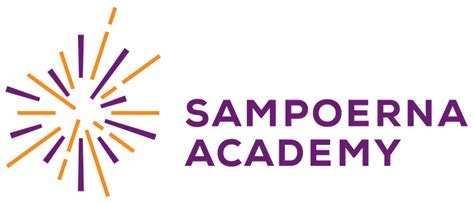Dear subscribers
As part of EDDi’s commitment to diversity, we occasionally feature contributions from non-native English speakers. The pieces are very lightly edited but retain the original author’s voice, tone and style.
At EDDi we feel it is important to appreciate and showcase writing in all of its forms, work coming from non-native speakers included. So, whilst these pieces are not written in the usual EDDi style, we hope that you will appreciate and value the contributions they make to our understanding of diverse educational settings.
This week we have a second piece from Sampoerna Academy, Indonesia.
If you would like to submit your own work, please connect with us via:
contact@eddi.ac
Happy reading
EDDi
Thoughts on education of the future…
By Dr. Hugo Liz de Castro, Sampoerna Academy
In education, the act of transmitting teaching is a process that must be adapted to each person.
The circumstances of our birth, the form and the place in which it we are conceived, our genetics, our environment, our history, make each of us unique.
For learning to happen, four factors must converge: that the teacher is the right one, that the student is also right (however defined), that the teaching is aligned and that it happens in the right place and at the right time. If these factors are not in harmony, learning will not occur or will be incomplete and even counterproductive. However, this conjunction of circumstances is difficult to achieve in formal education, at least as the school is now conceived – though it can happen more easily in an experiential education environment.
At this historical moment, in this society, it is not possible to undertake the formal learning process without school. However, it becomes clear that school has to change – that it must be geared towards a system in which each person can find the learning they need; that is, make education much more personalized.
Right now, there are many limitations to make this possible, and one of the most important to mention is the excessive intervention, and the constant desire to have everything under control for those in decision-making positions - an educational system can hardly change under these conditions. Regardless of who the decisions correspond to, what is evident is that in many stages of learning such decisions or approvals are not necessary and are being used as a standardization and selection mechanism to guide learning along specific paths determined at the same time. Anything that is not approved, that is not subject to external evaluation, is not considered worthy of being learned. The need for certification of diplomas does not justify that knowledge starts to normalize from childhood.
Furthermore, it is counterproductive for this to be done because of the rigidity, the limits it imposes, the development opportunities it closes and the possibilities that are lost. Furthermore, what is worse, with the normalization of knowledge, all schools are managed to function in the same way.
Moreover, knowledge acquired at school is increasingly irrelevant for employers and job seekers.
Few believe that a good scientist is formed from what they were able to tell him or her in science classes, or that a civil engineer learned to build bridges with what she or he was told about structures. To be a good painter, one of the greatest, it is not enough to go through a Fine Arts Academy; it may even be unnecessary or better not to. As a curiosity, we note that most professions, except teaching, are learned outside of school; working with those who exercise them, practising, solving real situations and not theoretical assumptions.
Theoretically, we can choose the school we want to go to, the one we consider the best for our children. However, what do our current schools offer? What project, aspirations, goals or results are presented to parents when they seek them out? What is different or significant about those seeking training that goes beyond the conventional?
Even though it's possible to approach a more personalised education, guided by teachers and adapted to the circumstances and potential of each person, both content and timetables can be organized and distributed overtime in another way: through flexible groupings, proposing content common to different subjects, scheduling school activity together, involving several teachers in the design, and not individually as it is being done now. The school must be open; it must be integrated into its community and recover its relations with families; it must establish educational pacts and joint actions. And not only with families, but also with municipalities, merchants, companies, neighbourhood communities, libraries, museums, street workers, daycare centres or nursing homes. The school must be filled, more and more, by people who teach, but are not specifically teachers, but occasional educators who are willing to offer their personal and professional training.
In conclusion, predicting the future consists of thinking about what the next events will be and how they will affect us, imagining where our present will take us, from what we know, from our past and what are our expectations and fears. Therefore, it is a permanent exercise in recreating our past in order to resolve it, improve it and act so that our mistakes do not repeat themselves.
But, predicting the future is not dreaming, which is what all educators should be doing - dreaming of the future as an opportunity, as a way to go to discover all of our potentials. As a source of experience and adventure, face the future from an artistic attitude and not from a statistical resignation.
The school is part of the central structure of society and is one of its main conservation mechanisms, but it can and should also become the focus from which change is promoted.
Author Bio
Dr. Hugo Liz de Castro | CITIZEN OF THE WORLD, EDUCATOR AND SPORTSMAN
"Where is not a problem, my mind and heart are where my conviction is"
Originally from Portugal, he served as both educator and administrator for schools and colleges over the past 22 years in countries spanning the globe. Currently, he is the Head of Schools at Sampoerna Academy Medan - sharing the school vision that celebrates and support a community grounded in international-mindedness, and the development of knowledgeable, caring, and responsible citizens.
Sampoerna Academy and Sampoerna University
For those interested, more detail on Sampoerna Academy can be found here.
DID WE MENTION THERE’S A BOOK?
Practical and easy-to-access, this comprehensive guide provides insight into one of the biggest, and most exciting, career transitions and life adventures many teachers ever make.
Whether you are new to this world or experienced, this authoritative text introduces, examines and unpicks the highs, the lows, the perks and the pitfalls of international schooling.
For anyone aspiring to, new to, being recruited into, or currently enjoying international teaching, it is essential reading.
AVALIABLE VIA
Amazon (US)
Amazon (UK)
Barnes & Noble
Book Depository
Books A Million
Enjoying EDDi?
As ever, if you are enjoying EDDi, please consider forwarding it to someone who would get a lot out of it.
If you were forwarded this email, you can subscribe to receive EDDi every fortnight.






